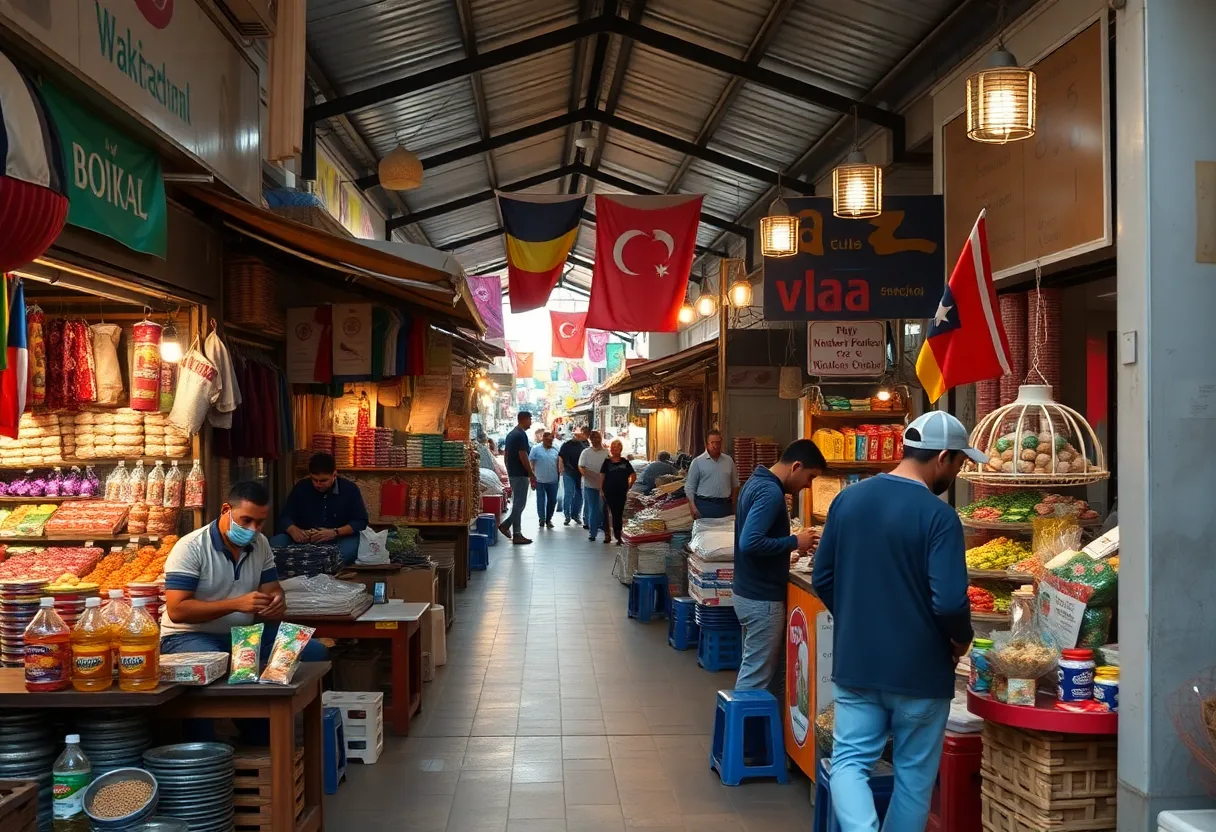News Summary
Businesses in Georgia are encountering mixed impacts from recent tariff policies in the U.S. While some like Highland Forge thrive due to domestic sourcing, others such as Bamblu struggle with increased costs on imported materials. The uncertainty surrounding tariffs is creating planning difficulties for many companies, revealing a complex economic landscape in the state. Industry experts warn of prolonged inflationary pressures and the ongoing need for businesses to adapt to rapidly changing market conditions.
Atlanta – The changing tariff policies in the United States have created a mixed bag of impacts for businesses in Georgia, revealing a complex landscape of growth, hesitancy, and uncertainty. Companies in the state are experiencing a range of effects based on their sourcing strategies and market positions in response to these tariffs.
Highland Forge, an Atlanta-based manufacturer known for curtain rods and other products, has reported a substantial growth rate of 40% year-to-date. This increase is attributed to the company’s decision to source all materials from domestic suppliers, which has allowed it to maintain stable prices amidst the turbulence created by tariffs affecting its competitors. The resultant heightened demand has necessitated the hiring of additional employees to meet the growing needs of their customer base.
In stark contrast, Tia Robinson, owner of Vertical Activewear, has noted a 140% increase in inquiries since the announcement of the tariffs. However, despite the surge in interest, large buyers are hesitating to place orders, leading to fewer actual sales. Vertical Activewear prides itself on producing sustainable clothing with American-sourced materials, a strategy which may not insulate them from the broader market shifts resulting from the tariff changes.
Similarly, Angela Hawkins, owner of Bamblu, faces severe challenges due to high tariffs imposed on materials imported from China. This financial burden has prompted her to explore U.S.-based manufacturing options; however, those alternatives come with significantly higher costs. Consequently, Hawkins has struggled with inventory restocking for several months, resulting in lost customer sales and a substantial impact on her business.
These varied experiences highlight the broader uncertainty many businesses face regarding the long-term implications of tariff policies on their sustainability and profitability. The U.S. Court of International Trade had temporarily blocked most of the tariffs initiated during the previous administration, but an appeals court reversed this decision, allowing tariffs to remain in effect. This judicial back-and-forth has added to the confusion for business owners trying to navigate the changing rules in their industry.
President Trump’s fluctuating tariff policies have created planning challenges for small businesses, with many unable to predict the ongoing costs or the competitive landscape. Organizations such as the National Retail Federation are actively seeking solutions to help businesses mitigate the uncertainty that these tariffs have invoked.
Exporting companies, such as Willow, which specializes in medical devices, are particularly struggling. They face the dual challenge of adapting their manufacturing processes while also absorbing additional tariff costs, compounding their operational difficulties. Some businesses have reported significant declines in sales as a direct result of these tariff-related pressures.
Federal Reserve President Raphael Bostic has hinted at the long-term economic impacts, predicting that changes in trade policy prompted by these tariffs will contribute to prolonged inflationary pressures rather than a transient spike in prices. This forecast is particularly concerning for many small business owners who are already feeling the strain of the current economic environment.
As Georgia businesses continue to navigate this complex terrain, the overall picture remains one of uncertainty. The varying impacts of tariffs underscore the diverse landscape of business operations within the state, where some companies flourish while others face significant headwinds. The friction created by inconsistent tariff policies adds another layer of complexity, prompting many business owners to consider their next steps in an evolving market.
Deeper Dive: News & Info About This Topic
- WSB TV: Some Georgia businesses say tariffs lead to more success, others keep struggling
- Atlanta News First: Georgia small businesses caught in tariff whiplash
- Fox Business: Atlanta Fed’s Bostic warns tariff impacts could cause prolonged inflation
- Google Search: tariffs effects on business
- The Atlanta Voice: Small businesses struggle with Trump tariffs
- Encyclopedia Britannica: Tariff

Author: STAFF HERE AUGUSTA WRITER
The AUGUSTA STAFF WRITER represents the experienced team at HEREAugusta.com, your go-to source for actionable local news and information in Augusta, Richmond County, and beyond. Specializing in "news you can use," we cover essential topics like product reviews for personal and business needs, local business directories, politics, real estate trends, neighborhood insights, and state news affecting the area—with deep expertise drawn from years of dedicated reporting and strong community input, including local press releases and business updates. We deliver top reporting on high-value events such as Arts in the Heart Festival, Westobou Festival, and Masters Week. Our coverage extends to key organizations like the Augusta Metro Chamber of Commerce and Greater Augusta Arts Council, plus leading businesses in manufacturing and healthcare that power the local economy such as Textron Specialized Vehicles, Cardinal Health, and Nutrien. As part of the broader HERE network, including HEREAtlanta.com and HERESavannah.com, we provide comprehensive, credible insights into Georgia's dynamic landscape.


